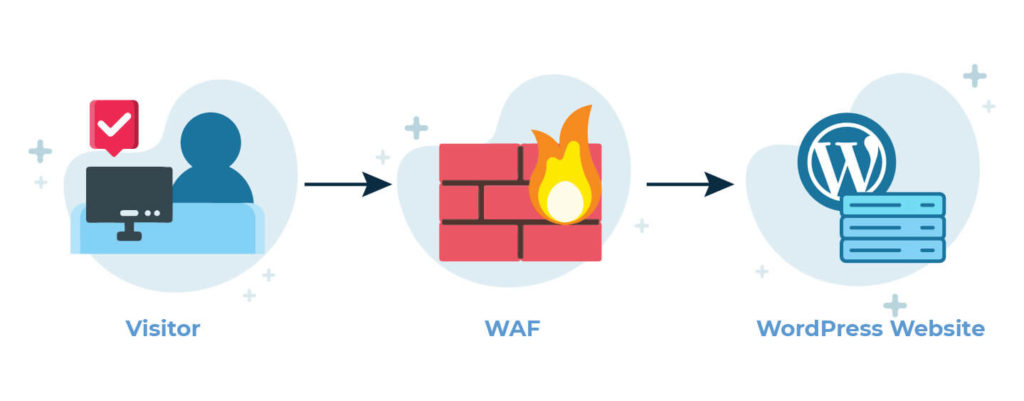Business cyber security is incredibly important for digital businesses. Without adequate security, your business and employees could be subject to malicious attacks.
These could damage your business greatly and result in a loss of data, work, and money.
In this cyber security guide…
- Why is cyber security for small businesses important?
- What are the business cyber security threats?
- How to improve your cyber security
Why Business Cyber Security for Small Businesses is important
Today, business is predominantly conducted online. Most businesses have moved away from paper-based operations. As a result, paper records have been replaced with digital files.
Also, communication, transactions, and invoicing is mainly done online. This increase in digital and online activity has resulted in an increase in cyber criminal activity and external threats.
Unfortunately, the digital world is full of cyber criminals who use various tactics to try and disrupt business operations, and steal important data.
Whenever you transmit or receive data outside your internal network, you are potentially at risk. This is why cyber security for small businesses is vital – to protect your data, the data of your employees, and the data of your customers and suppliers.
Oftentimes, cyber criminals will prey on small businesses, as they deem that their cyber security will be easier to hack than large corporations.
What are the Business Cyber Security Threats?
Business cyber security threats come in many forms. As security technology has developed, so has the methods of cyber attacks.
Cyber criminals continually develop new ways to attack networks and cause disruptions. Some threats like DoS are more disruptive – they simply slow your work.
Others, however, can be incredibly damaging and result in the loss of important data like business records and payment details.
The following are some of the most common forms of cyber attacks currently used:
- Ransomware
- Phishing
- Data leaks
- Malware
- Denial of Service attacks
You can protect your business from the majority of these threats by installing an effective antivirus software and using a VPN for privacy online.
Ransomware
Ransomware is a process by which sensitive business data is encrypted so that only the attacker can access it. The attacker then holds the business ransom, and will not decrypt the data unless their demands are met.
This can have grave consequences such as the ransomware incident in which the Atlanta government was involved in in 2018.
Phishing
Phishing is either a fake website or email that tricks the recipient.
Phishing content looks real, and is usually replicated to recreate a popular business. The user is then tricked into making a purchase from the fake company, or downloading malware.
Data leaks
Many cyber criminals concentrate on the acquisition of sensitive data.
These data leaks can be damaging and result in the loss of money and important information. Cyber criminals usually sell this information on the black market or dark web.
Malware
Malware is one of the most common types of cyber security threats. This is a type of software that you unintentionally download. The software then executes a malicious attack and can cause serious damage to your files and network.
Denial of Service Attacks
Finally, there are DoS attacks. Denial of Service attacks involve the attacker forcefully using your network resources.
They use advanced programs to repeatedly make requests that overload the processing power of the network such as a website, or server. The service cannot cope, and ultimately fails.
How Can You Improve Your Business Cyber Security?
Now that you understand the potential threats, what can be done to improve business cyber security?
First, we advise creating a cyber security plan. A solid plan with specific actions will ensure you can implement your security properly. Also, it ensures everyone in your team understands the importance, and knows what to expect.
The plan should outline what is to be implemented, together with timeframes, and who is responsible. Once this is complete, the following are 5 things you can do to improve your security:
Perform regular backups of business data
Did you know that on average, businesses have only 5% of their folders protected? This is why having a backup of all your business data is vital.
If you are the victim of a cyber-attack, and your folders and files are damaged, what happens? If you have no backup, those files and important business data could be lost permanently.
However, if you have a copy stored on a secure external HDD, they are safe.
Ideally, you should backup your business data in two ways. Firstly, onto a separate external HDD. You can purchase secure HDDs for relatively cheap that have large storage capacities.
A full backup should be done at least once per week, so that the HDD has the latest versions of your business files. Also, the external HDD should be kept in a secure location, away from the business computers and network.
Secondly, you could also backup data to a secure cloud storage service. Many cloud storage services offer backups services that small businesses can benefit from.
This is an essential step to ensure cyber security for small businesses, and to prevent loss.
Ensure all devices are protected by antivirus software
This is an obvious form of protection, but it is surprising how many small businesses still don’t have effective antivirus software installed. Antivirus software is your primary form of defence against cyber-attacks. It is basic cyber security for small businesses.
You can find a range of cheap but effective antivirus software providers that have fantastic packages for small businesses. Antivirus software can protect in many ways. Firstly, it can block spam emails and harmful emails, and eliminate dangerous email attachments.
Next, it can also monitor internet browsing. This can include blocking phishing sites, malware, and malicious pop-up adverts. Also, it can be used to filter dangerous website content.
Antivirus software effectively monitors your incoming and outgoing internet traffic and data. As you can see, it is incredibly important. Therefore, it should be one of the first things you implement as part of your small business cyber security plan.
Ensure that all connected devices are protected – this includes desktop computers, laptops, smartphones and tablets. You may also want to consider using a VPN to help keep your device secure and private when browsing online.
Check out this guide for advice on how to get a VPN.
Enforce a strict password policy
Weak passwords can present a prime opportunity for cyber criminals to exploit. Most people will use words or numbers associated with themselves.
Also, people will often avoid using special characters, numbers, and capitals. As part of your small business cyber security plan, you should request that all employees use strong passwords.
These passwords should be a random word, and contain a mix of special characters, numbers, letters, and capitals. A strong password has a much smaller risk of being cracked by cyber criminals.
Also, it is advisable to regularly change passwords. You could request that employees change their computer login password once per month, for example. This keeps the password random, and further reduces the chance of a breach.
Practice safe internet usage
Did you know that 95% of cyber security breaches result from human error? One such potential for error is internet usage. Unless you have a strict internet usage policy, your employees may unwittingly access phishing sites, or even download viruses and malware.
To combat this, you could first set up an internet filter. Most antivirus software has some type of internet blocked that protects from phishing, and also blocks harmful pop-up adverts.
Also, you could add a host of blocked websites that employees cannot access. This could include pornography, and online gambling, for example. Many businesses also block the use of social media platforms like Facebook and Twitter.
You must strike a balance between security and employee enjoyment. On the one hand, you want to protect your employees and your business.
However, on the other hand, you want them to be able to take a break from their work during breaks etc.

Use a firewall to protect your internal network
Whilst antivirus software protects your online actions like emails, and internet browsing, a physical firewall protects your internal network and physical devices.
A firewall is a device that filters incoming and outgoing network traffic. It is an important device and a primary form of protection for your small business.
Cisco is one of the most reputable manufacturers of firewalls for small business security. For example, the Cisco Firepower 1000 Series is an excellent firewall tailored for small businesses.
It has any easy to use interface and brings you security in a form that anyone can understand – regardless of their technical knowledge. Whatever device you choose – a physical firewall is vital to maintain cyber security for small businesses.
Educate Your Staff
Lastly, it is important that you instill a positive security culture in your business. A small business cyber security plan is only effective if everyone plays their part.
We advise spending time educating your employees about the importance of cyber security for small businesses. Impress on them the potential dangers, and how a cyber breach could affect the business – and their work.
If your entire team has a positive attitude towards cyber security, your plan will be that much more effective.
Improve your business cyber security
We hope you have found this guide useful. We urge you to take your small business cyber security seriously. The threats are real, and cyber-attacks can be incredibly damaging to everything you have worked hard for.
By understanding the potential threats, and implementing a firm cyber security plan, you can effectively protect your business and concentrate on what matters.
Did this business cyber security guide help you? If so please recommend DigitalSupermarket.





